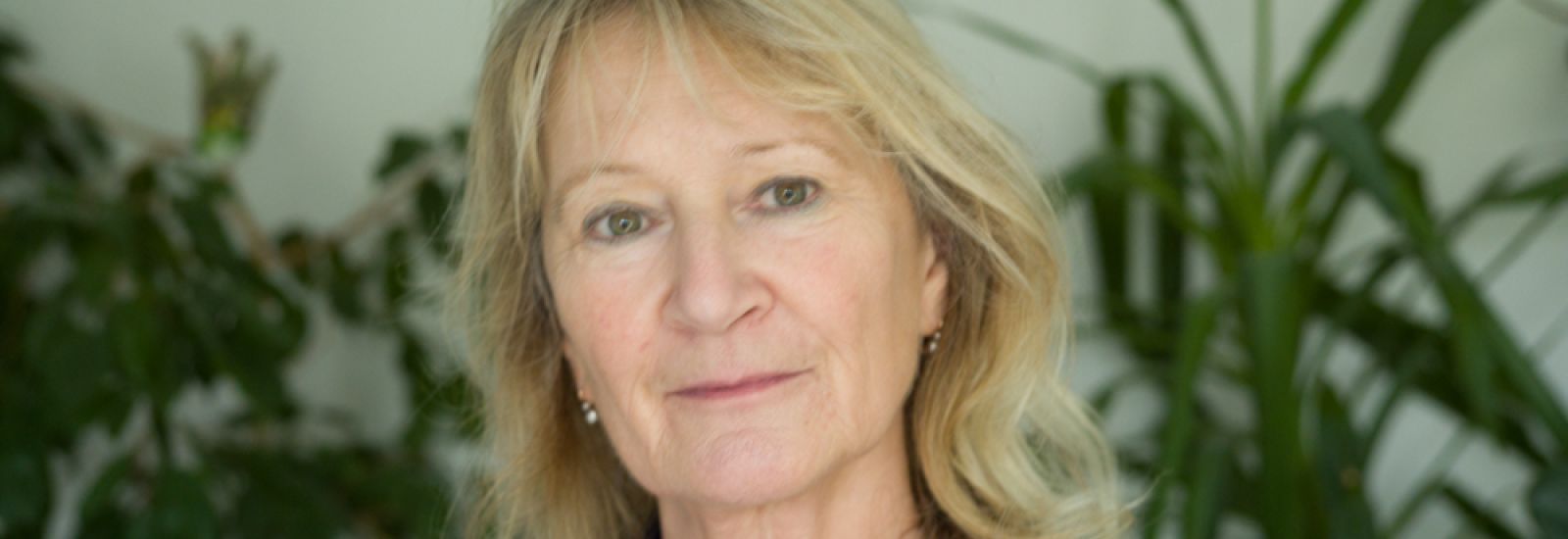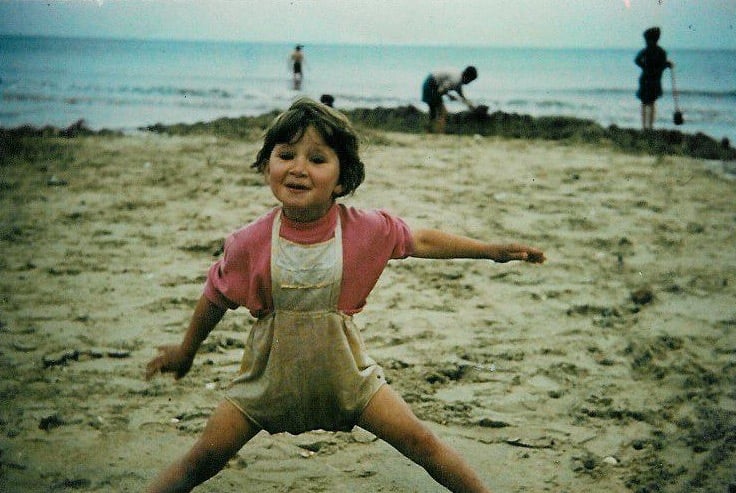
Professor Marina Jirotka, the accidental computer expert, and the battle to make tech ethical, sustainable and fair
Professor Marina Jirotka is a highly-respected Professor of Computer Science at Oxford and an international expert in Human Centred Computing and Responsible Innovation. She has been at the university for some 30 years – and yet, she smiles, she is not from a typical Oxford academic background. It really could have all been very different.
Professor Jirotka's parents, academic chemists, came to this country on the eve of war from what was then Czechoslovakia. Refugees from Hitler, then Stalin, they settled in a small town in Scotland, with her grandparents; building a business and a new life far from home.
Her father, a dashing ice hockey star in Prague, died tragically young. Her grandfather died not long after leaving her mother, her grandmother and two small children. Her mother then took on the management of the business. It was very difficult [after her father died], she says, ’My mother was a remarkable woman. She just picked up the factory and carried on. She became the company director and ran it until she sold it to IMI.’
Meanwhile, Marina, her sister, and their grandmother, went to live in Kent, among fellow Czechs, who had formed a little community in Westgate on Sea.

‘We didn’t see my mother much during that time, she remained in Scotland,’ says Professor Jirotka. ’In my teenage years, I was desperate to get away from Westgate.’
I was very interested in why people did what they did [and so took a degree in Social Anthropology and Psychology]. I found it really rewarding. It opened my eyes
Professor Marina Jirotka
She succeeded by taking a degree in Social Anthropology and Psychology at Goldsmiths College.
‘I was very interested in why people did what they did,’ she recalls. ‘I found it really rewarding. It opened my eyes – it was wonderful. I was a mature student, although I was only in my early 20s.’
‘We had some amazing lecturers,’ she says. ‘They were very committed. We were talking about colonisation and deconstruction back then.
‘London was very exciting, and I didn’t want to be dependent on my family or go back to Westgate.’
It was then that another complete chance took the recent graduate onto the path that was to become her career – computing, ‘I spotted in a newspaper this conversion course, where you learned about computers and artificial intelligence. I enrolled. I was one of only three women on the course.'
The course introduced her to computers – then, very much a novelty.
‘It was the first AI really,’ she says. After she graduated from the course, she took a masters at South Bank, in knowledge-based systems. And then went to her first academic job at Surrey University.
[After taking her degree] I spotted in a newspaper this conversion course, where you learned about computers and artificial intelligence. I enrolled. I was one of only three women on the course...It was the first AI really
It was a time of immense change in the world of computing, and she was involved in a major government programme to create a system to help people with their benefits’ claims.
‘There were three systems – one for policymakers, one for DSS staff and one for claimants.’
In the mid-1980s and most people did not have access to a home computer, so creating a system for ordinary people was no easy task – and her social sciences background, understanding psychology, helped enormously. It was this, that saw her come to Oxford within the decade.
‘I saw a job at Oxford’s Computer Science Lab, as it was then called, to do requirements engineering. You needed to understand what people want and then design systems to support that…. I didn’t understand how Oxford worked…but I got the job.’
She was interested in practical applications and her doctorate was then supported by BT, which, like a lot of large organisations at the time, was looking for researchers to help with their IT innovations.
People may not know what they want from a system. But I was interested in watching what people did and working out from that what they needed. It’s very interesting
‘I don’t know how these things happen,’ she says, still astonished. 'But it meant I was able to focus on the areas in which I was interested. I was interested in how systems worked for people and anticipating their needs.’
‘People may not know what they want from a system. But I was interested in watching what people did and working out from that what they needed. It’s very interesting.’
Professor Jirotka remains committed to human centred computing and is now at the forefront of work on Responsible Innovation.
‘It’s really hard,’ she says. ‘There are a lot of ethical issues in computing and AI.'
But AI has also become an ever-present feature of computer programs – deciding who is called for interviews, who is granted a loan and who is seen at risk of reoffending when considered for parole.
There are a lot of ethical issues in computing and AI: AI has also become an ever-present feature of computer programs – deciding who is called for interviews, who is granted a loan and who is seen at risk of reoffending when considered for parole
‘I’m more and more interested in Responsible Innovation,’ she says. ‘Nobody wants to build unintended consequences into a system – bias, for example…the trouble is, the industry is all about running fast and breaking things, it’s the mind-set. People often don’t think about negative or unintended consequences. But they exist.’
Professor Jirotka has recently been working with Baroness Beeban Kidron, who has set up a charity 5Rights that works to put children’s needs and rights at the heart of digital design. Having met the former film maker while giving evidence to a House of Lords committee, Professor Jirotka says, like Beeban, she is passionate about helping to make the internet safe for children.
I’m more and more interested in Responsible Innovation…the trouble is, the industry is all about running fast and breaking things, it’s the mind-set. People often don’t think about negative or unintended consequences
‘It’s scary what’s happening…and I’d like to see much more social justice and equality in the tech space.’
As part of Responsible Innovation, she also researches into making ICT more sustainable.
The waste and obsolescence of the industry frustrates her, ‘You are forced into upgrading. It’s not sustainable at all…. Working with colleagues in Lancaster and with Professor Mike Berners-Lee who wrote ‘There is no Planet B’ we are researching how to make ICT Paris compliant.’
But she is under no illusion about the enormity of the problem – with five multi-billion-dollar companies dominating the space, it is a challenge to see change occur, that is sustainable and responsible.
Professor Jirotka has recently been working with Baroness Beeban Kidron, who has set up a charity 5Rights that works to put children’s needs and rights at the heart of digital design...like Beeban, Professor Jirotka says, she is passionate about helping to make the internet safe for children
We are a long way, though, she says from robots taking over the world, although Professor Jirotka is championing the installation of ‘black box’ recorders for responsible robotics. Like the ones in airplanes, these are intended to be relatively simple, she says, and will provide some accountability and information, in the event that something goes wrong.
Top of Professor Jirotka’s wishlist, however, is something rather less hi-tech. She admits to feeling ‘depressed’ sometimes about climate change and wants to see action now. Aside from her campaigning work on computer safety and responsibility, Professor Jirotka also campaigns for animals and the environment.
We are a long way, she says from robots taking over the world...[but she] is championing the installation of ‘black box’ recorders for responsible robotics...[to] provide some accountability and information, in the event that something goes wrong
But things are changing slowly, and Professor Jirotka notes that ‘some of the younger generation are truly amazing. I have every hope they will succeed in creating a healthier environment.'
By Sarah Whitebloom